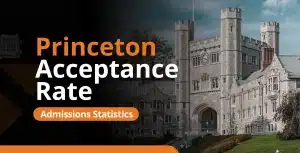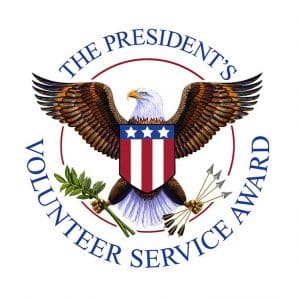Wesleyan University Diversity Statistics: An In-Depth Overview
Wesleyan University is a private liberal arts college located in Middletown, Connecticut, USA. It was founded in 1831, making it one of the oldest institutions of higher education in the United States. Wesleyan University is known for having an impressive diversity statistics and dynamic curriculum, offering students a range of courses and programs across the arts, sciences, humanities, and social sciences.
The university has a strong commitment to undergraduate teaching and provides a supportive and collaborative learning environment. Students are encouraged to explore their interests, participate in research projects, and engage in creative pursuits. Wesleyan also emphasizes experiential learning, offering numerous opportunities for internships, community service, diversity statistics, and study abroad programs.
With a student body of around 3,000 undergraduates and a faculty dedicated to intellectual and personal growth, Wesleyan University stands out as a place where students can pursue their passions, challenge themselves academically, and prepare for a successful future.
How many students attend Wesleyan University?
During the 2022-2023 academic year, Wesleyan University welcomed a total of 3,581 students.
This group is made up of 3,069 undergraduate students and 184 graduate students. The university caters mostly to full-time students, with 3,370 attending full-time and 211 part-time. Specifically, the graduate programs in the natural sciences, mathematics, and ethnomusicology include about 130 students, while the Graduate Liberal Studies program has over 50 participants.
Admission to Wesleyan is competitive, with a focus on selecting students based on their accomplishments and potential, while also striving to bring together a diverse group of learners. Financial support is broadly available, including for international students, though it is somewhat limited.
For the Class of 2026, Wesleyan received 14,521 applications and admitted 2,096 students, which translates to an admission rate of 14.4%. Out of these, 743 students chose to enroll.
The student body is almost evenly split by gender, with 51% identifying as women and 49% as men. A significant 79% of the incoming students were among the top 10% in their high school classes. The median SAT scores for enrolled students were 710 for Evidence-Based Reading and Writing (ERW) and 710 for Math, with an average ACT score of 32.

Wesleyan University Undergraduate Population
Wesleyan University hosts a vibrant undergraduate community of about 3,000 students who are enrolled full-time.
The university prides itself on a student-to-faculty ratio of 8 to 1, which ensures that students receive a highly personalized education. This favorable ratio contributes to smaller class sizes and fosters a more intimate and engaging learning environment.
The university offers a wide range of degree programs including Bachelor of Arts, Bachelor of Liberal Studies, Master of Arts, Master of Arts in Liberal Studies, Master of Philosophy in Liberal Arts, and doctoral degrees across six different disciplines. In the year 2022, Wesleyan awarded 801 Bachelor of Arts/Liberal Arts degrees and 82 graduate degrees, highlighting the institution’s commitment to comprehensive education and diversity statistics.
Academically, Wesleyan is rich in diversity statistics, and opportunity, offering over 1,000 courses across 45 major fields of study, 31 minor fields, and three distinct certificate programs. In addition to traditional coursework, students have access to more than 800 individual tutorials and private music lessons, allowing for highly personalized and in-depth exploration of subjects.
The university encompasses seven colleges and 12 academic centers, further broadening the educational experiences available to students. Wesleyan’s global perspective and commitment to diversity statistics is evident in its study abroad programs, with flagship programs in Bologna, Italy; Madrid, Spain; and Paris, France.
Students have a choice of approximately 150 pre-approved programs worldwide, thanks to Wesleyan’s participation in the Twelve-College Exchange Program. The New England Commission of Higher Education (NECHE) last accredited Wesleyan in 2013, affirming the university’s high standards in higher education.
Wesleyan University Graduate Population
Wesleyan University’s graduate community includes around 180 students who are engaged in advanced studies across a range of programs.
These programs encompass the BA/MA, Master of Arts, Master of Philosophy in Liberal Arts, and Doctor of Philosophy, among others. Each program is designed to cater to diverse academic interests and career aspirations.
The process for applying to graduate programs at Wesleyan is detailed and varies depending on the department and specific degree program. Generally, applicants are expected to provide official academic transcripts, prove their proficiency in English if they are non-native speakers, and in some cases, submit GRE scores.
Certain programs might also require applicants to demonstrate specific language skills or fulfill department-specific prerequisites. Acceptance into a graduate program is contingent upon the successful completion of an undergraduate degree and compliance with health regulations as mandated by the state of Connecticut.
Wesleyan has a notable record of its graduates being accepted into prestigious medical, law, business, and other advanced degree programs, demonstrating the strength of its academic and pre-professional training. The university offers a unique opportunity for undergraduates to pursue a Bachelor of Arts degree concurrently with a Bachelor of Science in Nursing (BSN), among other options.
Students are encouraged to tailor their educational experience to their interests, with possibilities ranging from self-designed majors to double or even triple majors, supported by close mentorship from faculty advisors.
For women, Wesleyan provides three accelerated online degree programs in business, accounting, and applied psychology, reflecting its commitment to flexible and accessible higher education.
Wesleyan’s inclusive graduate offerings cater to both men and women through five distinct graduate programs: Master of Business Administration, Master of Education in Elementary Education, Master of Arts in Industrial-Organizational Psychology, Master of Science in Nonprofit Management, and Master of Music. These programs are designed to provide deep, specialized knowledge and skills to prepare graduates for leadership roles in their respective fields.

Wesleyan University International Student Population
Wesleyan University is home to a vibrant and diverse international student community, with 466 international students making up 14.32% of its total student population.
These students hail from more than 60 countries, bringing a wealth of cultural perspectives to the campus. Popular areas of study among international students include Economics, Computer Science, Psychology, and Ethnomusicology. Furthermore, a quarter of these international students are supported through financial aid programs offered by the university.
After completing their studies, a significant number of Wesleyan’s international alumni find employment within the U.S., often utilizing OPT (Optional Practical Training) and STEM OPT authorizations to gain valuable work experience.
The university’s commitment to diversity statistics is further reflected in the makeup of its Class of 2026, with 32% of students identifying as people of color. This includes 5.8% who identify as Black or African American, 9.7% as Asian or Asian American, 9.3% as Latino or Hispanic, and 7.3% as two or more races. Additionally, international students comprise 10.9% of the student body, showcasing Wesleyan’s global appeal.
Wesleyan’s inclusivity extends across geographic boundaries, with students coming from all 51 U.S. states and territories, and 62 different countries around the world. The Class of 2026 also shows a notable representation of gender diversity, with 3.5% of students identifying as transgender, gender nonbinary, or genderqueer.
Looking at the broader picture, the Classes of 2023 to 2026 collectively include 32% students of color and 10.4% international students, underscoring Wesleyan’s commitment to diversity statistics and a globally conscious academic community.
Wesleyan University Gender Distribution
At Wesleyan University, the student body includes a larger proportion of female students compared to male students. Specifically, the overall gender diversity statistics reveals that 56% of the students are women, while 44% are men. This trend is consistent across different levels of study at the university.
|
Wesleyan Student Population |
No. of Students |
Percentage |
|
Female |
1,758 | 54% |
| Male | 1,295 |
46% |
Within the undergraduate programs, the difference is slightly more pronounced, with women making up 58% of the population and men 42%. The gender distribution among graduate students is more balanced but still leans towards a majority of female students, with women representing 51% and men 49% of the graduate population. This gender ratio highlights the diversity statistics and inclusive environment that Wesleyan University fosters, accommodating students from various backgrounds and perspectives.

Wesleyan University Age Distribution
Wesleyan University stands out for its ability to attract a wide range of students across different age groups, earning a high score for age diversity statistics. The university has received a score of 59.08 out of 100 for student age diversity statistics. This indicates Wesleyan is successful in appealing to individuals at various stages of life, from young students to those seeking further education later in life.
Breaking down the age distribution, we find that a small portion of the student body, 4.5%, is under 18. The majority of students, however, fall into the traditional college age range of 18-21 years, with 41.8% aged 18-19 and 40% aged 20-21, totaling 82.07%.
|
Age Range |
Percentage |
|
Under 18 |
4.5% |
| 18-19 |
41.8% |
|
20-21 |
40% |
| 22-24 |
8.13% |
|
25-29 |
2.35% |
| 30-34 |
1.23% |
|
35-39 |
0.53% |
| 40-49 |
0.95% |
|
50-64 |
0.45% |
| Over 64 |
0.06% |
|
Unknown |
0.00% |
This is significantly higher than the national average of 60% for this age group, highlighting Wesleyan’s appeal among traditional college-aged students. Beyond this, 8.13% of students are aged 22-24, showing that the university also attracts those who are slightly older than the traditional age range.
The distribution continues with 2.35% of students between 25-29 years old, 1.23% in the 30-34 age range, and smaller percentages as the age increases, including 0.53% aged 35-39, 0.95% aged 40-49, 0.45% aged 50-64, and a minimal 0.06% over 64 years of age. There are no students whose age is unknown.
Wesleyan University’s student body composition reflects a vibrant community that is inclusive of a broad spectrum of ages, predominantly featuring those in the traditional college-going age group, but also extending a warm welcome to students who decide to pursue higher education at different points in their lives.

Wesleyan University Diversity Statistics and Racial/Ethnic Demographics
Wesleyan University is dedicated to diversity statistics and an inclusive campus environment, welcoming students from a variety of backgrounds, including those who are the first in their families to attend college.
About 10% of the Class of 2025 are first-generation college students, a slight decrease from the 14-15% in recent classes. This commitment to diversity is further highlighted by Wesleyan’s student body composition and the range of initiatives aimed at promoting inclusivity and diversity statistics.
The racial and ethnic makeup of Wesleyan’s student body is diverse, though the majority of students, 61.30%, identify as White. Hispanic students make up 13.10% of the population, followed by Asian students at 8.38%, those identifying with two or more races at 7.46%, and Black or African American students at 6.96%.
A small fraction of students identify as American Indian/Native American (0.03%) or Native Hawaiian or Other Pacific Islander (0.09%), with 2.68% of students’ racial or ethnic backgrounds unknown.
|
Race/Ethnicity |
Percentage |
|
White |
61.30% |
| Hispanic |
13.10% |
|
Asian |
8.38% |
| Two or more |
7.46% |
|
Black/African American |
6.96% |
| American Indian/Native American |
0.03% |
|
Native Hawaiian or Other Pacific Islander |
0.09% |
| Unknown |
2.68% |
Despite these figures, Wesleyan’s efforts to cultivate an environment that values diversity statistics and equity are evident through various campus initiatives. These include Public Safety’s pledge to promote equity and denounce racism, the implementation of multicultural supportive strategies, and the organization of events like Equity & Inclusion Week which features workshops and discussions aimed at reinforcing the importance of an inclusive campus culture.
Wesleyan boasts a significant minority representation, with 47% of students identifying as BIPOC (Black, Indigenous, and People of Color), contributing to a vibrant and varied community. The Office for Equity & Inclusion is pivotal in these efforts, leading programs and providing resources to support underrepresented students, including those from LGBTQIA, undocumented/DACA backgrounds, and first-generation college students.
Resources for first-generation students include academic advising, financial aid assistance, and various support services designed to ensure their success. Wesleyan’s student body is geographically diverse, drawing students from across all 51 U.S. states and territories and 62 foreign countries.
This diversity extends to gender identity, with 3.5% of the Class of 2026 identifying as transgender, gender nonbinary, or genderqueer, underscoring Wesleyan’s commitment to supporting students of all identities.

Wesleyan University Racial/Ethnic Diversity Among Faculty
Wesleyan University is home to a faculty of over 400 members who are not only dedicated to teaching undergraduates but also actively engaged in scholarship and research. This faculty comprises 47% women and 53% men, with 29% identifying as persons of color. These figures reflect Wesleyan’s commitment to a diverse and inclusive academic environment.
The faculty’s racial and ethnic composition is as follows: 77% identify as White, 5.87% as Asian, 7.19% as Black or African American, 3.04% as Multi-Ethnic, and 0.20% as Native Hawaiian or Pacific Islander. This diversity among faculty members enhances the educational experience by bringing a wide range of perspectives, expertise, and excellence to the university.
|
Faculty Race/Ethnicity |
Percentage |
|
White |
77% |
| Asian |
5.87% |
|
Black or African American |
7.19% |
| Multi-Ethnic |
3.04% |
|
Native Hawaiian or Pacific Islander |
0.20% |
Wesleyan University takes active steps to promote diversity and inclusion within its faculty through various initiatives. The Office of Public Safety emphasizes the importance of diversity among its staff, recognizing that diverse perspectives contribute to a stronger team. It commits to fair treatment for all, without racial profiling, and maintains an open dialogue with the campus community to address safety issues effectively.
The university values having a diverse faculty as crucial for addressing power inequities on campus and for enriching the college’s intellectual and community life. Such diversity is seen as vital for an environment where all members can thrive.
Through ongoing training, Wesleyan’s faculty members learn to acknowledge and address biases, enhancing their ability to contribute to a diverse and inclusive academic setting. Workshops and events, such as Equity & Inclusion Week, encourage faculty to engage in meaningful conversations about diversity statistics and inclusion, sharing knowledge and experiences to benefit the entire campus community.
Specific programs and workshops are designed to support faculty in adopting inclusive teaching practices and crafting statements that reflect a commitment to diversity statistics, equity, inclusion, and belonging. The Administrators & Faculty of Color Alliance (AFCA) provides additional support, aiming to promote personal and professional growth among faculty and staff of color.
These efforts demonstrate Wesleyan University’s ongoing commitment to creating an educational environment where diversity is welcomed and actively promoted, ensuring that all members of the campus community are valued and supported.
Wesleyan University Geographic Diversity
Wesleyan University stands out for its commitment to geographic diversity statistics, ranking 36th among 2,183 institutions. A significant 91.65% of its students come from outside Connecticut, while 16.28% are international, showcasing a wide geographic representation. This diversity is underscored by a high student location diversity score of 98 out of 100, with the top five states represented being New York, California, Massachusetts, New Jersey, and Connecticut.
The university has undertaken various initiatives to achieve this geographic diversity statistics, such as ending legacy admissions to broaden the diversity of the student body beyond race, focusing on attracting students from a variety of nationalities, regions, first languages, races, ethnicities, and socio-economic backgrounds. These efforts aim to create a vibrant, inclusive community that benefits from a rich exchange of cultures and perspectives.
Wesleyan’s approach to enhancing geographic diversity statistics includes strategic recruitment efforts to attract students from across the globe, emphasizing the importance of a diverse range of academic and co-curricular interests. The university also supports study abroad programs, encouraging students to gain global experience and understanding.
Financial aid is a critical component of Wesleyan’s strategy, aiming to make education accessible to students from all geographic and socio-economic backgrounds. Wesleyan meets 100% of demonstrated financial need for admitted students, which is a key factor in maintaining a diverse and inclusive campus environment.
These measures, along with a test-optional policy and support for undocumented students, demonstrate Wesleyan’s evolving approach to creating a student body that reflects a broad spectrum of geographic backgrounds. This commitment to geographic diversity statistics enriches the educational experience for all students, with a dynamic and globally aware campus community.

Wesleyan University Financial Diversity
Wesleyan University is committed to ensuring that all admitted students have the opportunity to attend, regardless of their financial circumstances. For the academic year 2021-22, the total cost for first-year and sophomore students was $84,872, which includes tuition, fees, residential comprehensive fees, and estimated costs for books, supplies, and miscellaneous expenses. For juniors and seniors, the total cost was slightly higher at $85,652, with a one-time matriculation fee of $300 for new students.
To support students financially, Wesleyan’s Financial Aid Office awards assistance based entirely on financial need, meeting the full demonstrated need of every admitted student. In the 2022-23 academic year, 38% of students received need-based scholarships, with the average award being nearly $61,770. Total scholarships for undergraduate students exceeded $71 million.
Wesleyan also offers merit scholarships and is known for its affordability among selective colleges in the United States. The university has been recognized for providing excellent value due to its competitive cost of attendance and high academic standards. It’s important to note that tuition costs are the same for both in-state and out-of-state students, making Wesleyan an economically viable option for many.
Wesleyan University has taken significant steps to enhance financial diversity statistics and make education accessible to all students. All admitted students have their full demonstrated financial need met by the university, through a combination of federal and state aid, institutional grants, and other financial support, ensuring that financial barriers do not prevent students from accessing education.
The university’s Admission Office actively recruits a diverse student body, focusing on geographic, racial/ethnic, and socioeconomic diversity statistics to enrich the campus community. Through initiatives like civic engagement programs and the Patricelli Center for Social Entrepreneurship, Wesleyan engages students, faculty, and staff in activities that contribute positively to the local and wider community.
Wesleyan’s financial policies are designed to support underrepresented groups, enhancing the university’s socioeconomic diversity. Loans have been eliminated from financial aid packages, alleviating the burden on students and making education more affordable, especially for middle-income families.
The university has expanded its outreach to Title I High Schools, established programs like the African Scholars Program, and increased efforts to include veterans, all aimed at providing diversity statistics and an inclusive student body.
These comprehensive efforts underscore Wesleyan University’s dedication to creating an environment where financial diversity is celebrated and all students, regardless of their economic background, can thrive and pursue their academic goals.
How diverse and inclusive is Wesleyan University?
Wesleyan University shows a comprehensive commitment to diversity, equity, and inclusion (DEI) through its structured efforts and resources aimed at having an inclusive academic and social environment. Here’s a summary of Wesleyan’s initiatives and practices in these areas, based on information from its Office for Equity & Inclusion, the library’s DEIJ (Diversity, Equity, Inclusion, and Justice) initiatives, and what they do to promote an inclusive environment:
Wesleyan’s OEI leads efforts to address systemic inequities and promotes a thriving campus climate. It is involved in organizing events like Equity & Inclusion Week, which features a range of programs focusing on equity and inclusion themes. The office hosts speakers and runs workshops, such as those by prominent figures discussing power, invisibility, and silence, and sessions on inclusive teaching practices and event planning.
The library’s DEIJ-Collections Team works on making the library’s collections more inclusive and accessible. They focus on diversifying holdings, applying for grants to digitize materials that amplify unheard voices, and making catalog records more accessible. Changes include updating terminology in cataloging to be more inclusive and ethical.
Wesleyan is committed to an equitable and inclusive education, striving to eliminate bias and discrimination. The university supports initiatives like the Resource Center and Pathways to Inclusive Excellence programs, aiming to ensure that all students thrive academically as well as improve Wesleyan University’s diversity statistics. The Title IX and Title VII Office work to eliminate discriminatory harassment or sexual misconduct. Furthermore, Wesleyan conducts campus climate surveys to inform its strategies on diversity statistics.
Efforts to improve hiring and retention practices aim to increase staff diversity. This includes recommendations for hiring, an Ambassador program for new hires, and internships to introduce more diversity into the library field.
Wesleyan University’s approach to diversity statistics and inclusion encompasses a broad range of activities and programs, from enhancing the diversity of its collections and changing cataloging practices to an inclusive campus culture through events, workshops, and critical conversations. These initiatives demonstrate Wesleyan’s commitment to creating a community that respects and embraces diversity statistics, equity, and inclusion.

Is diversity important at Wesleyan University?
Wesleyan University is deeply invested in promoting diversity statistics and inclusivity, as shown by its wide-ranging initiatives and policies across its departments. The Office of Public Safety at Wesleyan prioritizes creating a campus that is safe and welcoming for everyone, actively rejecting all forms of racism.
The diversity of Wesleyan’s student body is a testament to its commitment, with 32% of students identifying as people of color, reflecting the university’s efforts to maintain a diverse academic community.
Key events and programs, such as Equity & Inclusion Week and workshops on inclusive teaching, underline the university’s focus on enhancing campus diversity and engagement.
These initiatives provide safe spaces for BIPOC students and have critical discussions around equity. Wesleyan’s Human Resources department underscores this commitment through its Diversity Policy, aiming for a workplace that reflects the university’s diverse and inclusive ethos.
Wesleyan College’s diversity has been nationally recognized, illustrating its socioeconomic, diversity statistics, geographic, and ethnic diversity through rankings and student reviews. The university conducts surveys, like the Belonging Survey at Nebraska Wesleyan University, to evaluate the effectiveness of its DEI efforts in creating a welcoming environment for all community members.
Dedicated committees and subcommittees work toward inclusive change, focusing on creating an inclusive campus, diversifying the population, and spreading awareness about opportunities for engagement.
Wesleyan acknowledges individuals making significant contributions to diversity statistics and inclusion with awards, recognizing both students and faculty who champion these causes. The university also employs a community policing strategy, involving everyone on campus in efforts to ensure safety and have a conducive environment for personal and academic growth.
Wesleyan values diversity in its curricular design and teaching methods, acknowledging its critical role in education and research. A Resource Center at Wesleyan serves as a hub for social justice and intercultural development, aligning with the university’s mission towards equity and inclusion.
Long-term strategic planning at Wesleyan includes concrete action plans to address structural conditions impacting equity and inclusion, diversity statistics, demonstrating the university’s sustained commitment to these values.

Clubs at Wesleyan University that promote diversity
Wesleyan University enriches its community by supporting its clubs and organizations. These groups span a diverse range of interests, including cultural, political, and religious perspectives. With this varied mix of clubs, Wesleyan encourages students to explore and celebrate a multitude of backgrounds and beliefs.
A.X.I.S. (Association of eXemplary International Students)
The Association of eXemplary International Students (A.X.I.S.) at Wesleyan University is dedicated to engaging students in a variety of experiences that enhance cultural and international understanding through diverse events, interactive activities, and educational trips. A.X.I.S. welcomes all students who have an interest in global cultures and issues, aiming to broaden their horizons and deepen their appreciation for the world’s diverse cultures.
A.X.I.S.’s mission centers on promoting diversity statistics and a sense of global understanding among the student body. By providing opportunities for cultural exchange and learning, the club serves as a vibrant platform where students can immerse themselves in different cultural perspectives, share their own experiences, and learn from one another.
This initiative improves students’ educational experience at Wesleyan but also cultivates a more inclusive and empathetic campus environment where diversity statistics is celebrated and valued.
A.X.I.S. contributes significantly to the university’s broader goals of equity and inclusion, as highlighted in the resources provided by Wesleyan University’s Equity & Inclusion efforts[1]. By participating in A.X.I.S. events and initiatives, students gain valuable insights into international cultures and perspectives, which complements the academic and social learning experiences offered by Wesleyan University.
Black Student Alliance (BSA)
The Black Student Alliance (BSA) at Wesleyan College plays a pivotal role in highlighting minority cultures and a sense of pride among students from diverse backgrounds. This organization engages both the campus and the surrounding Macon community through a variety of programs and events designed to educate on the historical, current, and future challenges faced by people of color.
BSA serves as an inclusive platform for all students who have an interest in understanding and celebrating cultural diversity, further enriching the Wesleyan College community’s appreciation for different perspectives and experiences.
Council on Religious Unity (CRU)
At Wesleyan College, the Council on Religious Unity (CRU) is dedicated to promoting knowledge and respect for the world’s major religions by commemorating significant religious holidays and events. Its mission is to enhance dialogue among all Wesleyan campus members, acting as a representative voice for students and enriching the college’s co-curricular life.
CRU offers a welcoming space for students to explore and honor different religious traditions, thereby nurturing a campus atmosphere of mutual respect and unity among its varied religious communities.

GLBAL
The Gay, Lesbian, Bisexual Alliance (GLBAL) at Wesleyan College enriches the campus culture through its advocacy and support for LGBTQ+ individuals. This organization offers a safe and welcoming space for students to engage with topics related to LGBTQ+ communities, including discussions and activities that promote awareness and understanding.
GLBAL’s mission is to cultivate an inclusive environment that respects and celebrates diversity in sexual orientations and gender identities. By doing so, GLBAL stands as a key contributor to a campus atmosphere where diversity is embraced, and every individual is encouraged to express their true selves without fear of discrimination.
GLBAL facilitates important conversations around LGBTQ+ issues and actively works towards building a campus community that is informed, compassionate, and supportive of all its members, regardless of their sexual orientation or gender identity.
This commitment to creating a supportive community reflects Wesleyan College’s overall dedication to promoting understanding, acceptance, and respect for diversity among its students, faculty, and staff.
Voz Latina
Voz Latina at Wesleyan College is an energetic group of Latina students dedicated to sharing and celebrating the rich cultural heritage of Latin America with the broader campus community. Through a variety of activities, including social gatherings, regular meetings, and community service projects, Voz Latina aims to spread cultural awareness and a sense of unity among students at Wesleyan.
Their efforts are centered on educating others about the diverse traditions, values, and contributions of Latin American cultures, contributing significantly to the vibrant multicultural environment of Wesleyan College.
Voz Latina helps with the college experience for its members and also for the entire Wesleyan community, promoting a deeper understanding and appreciation of Latin American cultures. Their work underscores the importance of cultural exchange and mutual respect, enhancing the inclusivity and diversity of the campus environment.
Women of Color Collective
The Women of Color Collective at Wesleyan University is a supportive community focused on uplifting individuals who engage with and support the experiences of women of color. This collective offers a nurturing space where members can freely share thoughts, seek encouragement, participate in meaningful conversations, and navigate challenging discussions.
The overarching aim is to achieve a more inclusive atmosphere for people of color and particularly for women of color both within the university and in broader contexts. The group is committed to validating the racial and sexual identities of its members, educating the wider Wesleyan community on pertinent issues, and ensuring that the perspectives and voices of women of color are heard and recognized across the campus.
This initiative is part of a broader effort by Wesleyan University to celebrate diversity, promote understanding, and support underrepresented communities within its student body.
Throughout the year, these clubs and organizations at Wesleyan University organize a variety of events that honor and explore cultures from all over the globe, contributing significantly to the creation of a welcoming and inclusive atmosphere on campus.

Is Wesleyan University The Right Fit For You?
Determining if Wesleyan University is the right fit for you involves considering various aspects of the university’s academic offerings, campus culture, extracurricular activities, and its commitment to diversity and inclusion. Wesleyan, located in Middletown, Connecticut, is known for its rigorous academic environment, vibrant student life, and a strong emphasis on community and global engagement.
Academic Flexibility and Interdisciplinary Studies
Wesleyan is renowned for its flexible curriculum and the breadth of its academic programs. It allows students to explore their interests across different disciplines without the strict limitations found in many other institutions.
This interdisciplinary approach encourages critical thinking and innovation. The university offers a unique program called the College of Integrative Sciences, which is designed for students interested in integrating science with other disciplines, demonstrating Wesleyan’s commitment to interdisciplinary learning.
Research Opportunities
Wesleyan provides numerous research opportunities for undergraduate students, which is somewhat unique for a liberal arts college. Students can engage in hands-on research as early as their first year, working alongside faculty members on meaningful projects across various fields. This early exposure to research can be invaluable for students planning to pursue graduate studies or careers in research-intensive fields.
Campus Life and Student Engagement
The university boasts a dynamic campus life with over 200 student-run organizations, including cultural groups, sports teams, and arts collectives. Wesleyan’s vibrant arts scene, for example, offers students opportunities to engage in music, theater, and visual arts, both as participants and as audience members. The Center for the Arts at Wesleyan is a hub for artistic activity, showcasing student and professional works throughout the year.
Commitment to Diversity and Inclusion
Wesleyan’s commitment to diversity and inclusion is evident in its policies, student organizations, and community initiatives. The university hosts various programs and events that celebrate cultural diversity, such as the annual Culture Show organized by the student-run Wesleyan International Student Association (WISA) and initiatives by the Office for Equity & Inclusion. These efforts aim to have an inclusive environment where all students feel valued and supported.
Global Perspective and Social Responsibility
Wesleyan encourages students to develop a global perspective through study abroad programs, international collaborations, and courses that address global issues. The university’s Patricelli Center for Social Entrepreneurship exemplifies Wesleyan’s commitment to social responsibility, offering workshops, funding, and mentorship for students interested in creating social impact through their careers and personal lives.
Before making a decision, prospective students should consider how these aspects align with their academic interests, career goals, and values. Wesleyan University may be a perfect fit for students who seek a challenging academic environment, a strong sense of community, opportunities for research and creative expression, and a campus culture that values diversity and global engagement.

Final Thoughts
Wesleyan University focuses on building a community where all students, no matter their background, can feel at home, prosper, and achieve their goals. The diversity statistics at Wesleyan reflect the university’s ongoing efforts to welcome students from a multitude of cultural, geographical, and socioeconomic backgrounds, providing them with the rich, varied perspectives necessary for a comprehensive education in today’s global society.
Wesleyan’s diverse student body enhances the learning experience by bringing a wide range of voices and experiences into classrooms, research projects, and community engagement initiatives. This diversity prepares students for the complexities and nuances of the global workforce and a campus culture that values empathy, respect, and understanding.
As Wesleyan continues to build on its diversity statistics and inclusion initiatives, it remains focused on creating a supportive and welcoming community for all. Through targeted recruitment, scholarships, mentorship programs, and student organizations that celebrate cultural diversity,
Wesleyan is not just tracking diversity through statistics but is actively enriching the collegiate experience for every student. In doing so, Wesleyan University stands as a model of progress in higher education, demonstrating how diversity statistics in all its forms can enhance education, encourage innovation, and strengthen community bonds.





































